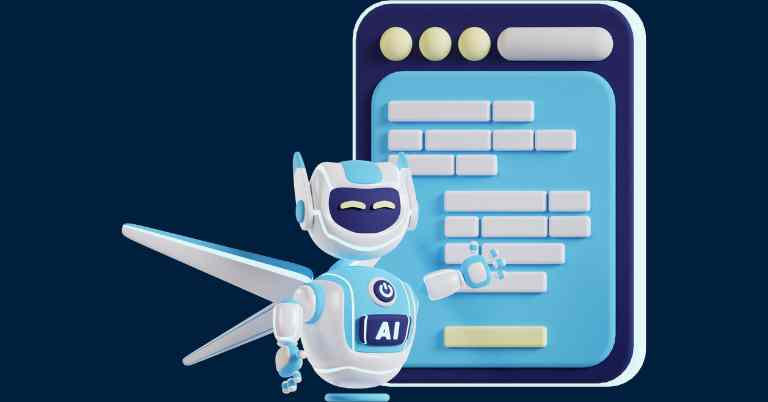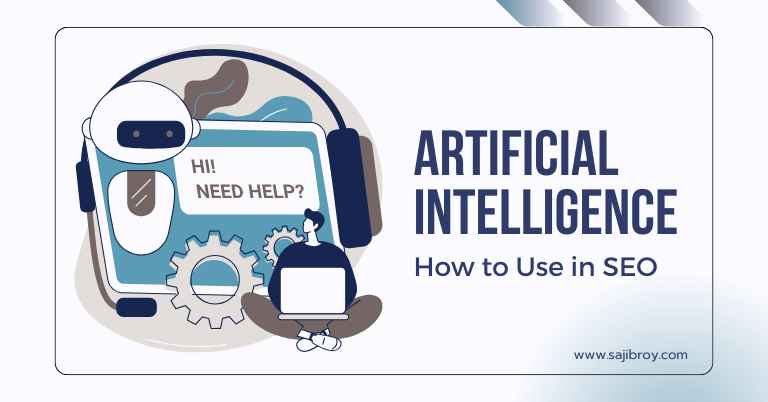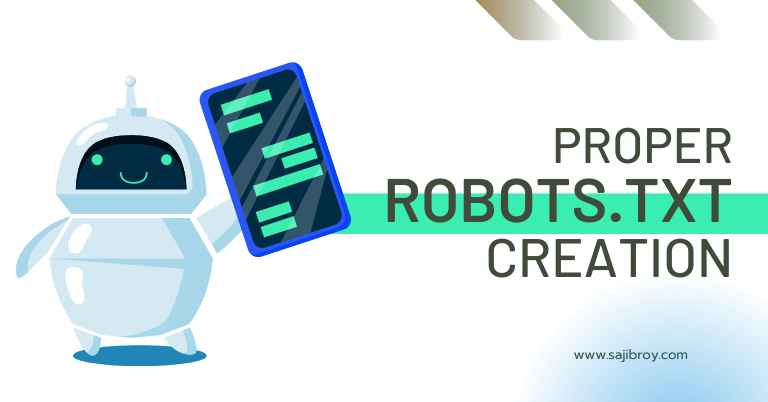To get into artificial intelligence, you should develop a strong foundation in mathematics and computer science and specialize in machine learning and data science.
Artificial Intelligence (AI) has emerged as one of the most transformative technologies of the 21st century, revolutionizing industries and reshaping the way we live and work. From self-driving cars to personalized recommendations, AI is permeating every aspect of our lives. If you’re intrigued by the endless possibilities of AI and aspire to carve a successful career in this field, you’re in the right place. In this article, we’ll explore expert tips to help you kickstart your journey into the world of Artificial Intelligence.
Embark on your AI journey with curiosity as your compass and perseverance as your fuel, and you’ll unlock the door to endless opportunities in the realm of intelligence augmentation.
Let's See the Topic Overview
Understanding The Field Of Artificial Intelligence
The Basics Of Artificial Intelligence
Artificial intelligence (AI) is a field of computer science that focuses on creating intelligent machines capable of performing tasks that usually require human intelligence. The goal is to develop computer systems that can replicate and simulate human-like cognitive abilities such as learning, reasoning, problem-solving, and decision-making.
Here are some key points to understand about the basics of AI:
- AI is divided into two categories: Narrow AI and general AI. Narrow AI refers to systems designed to perform specific tasks, whereas general AI aims to create machines that possess the same level of intelligence as humans.
- Machine learning (ml) is a critical component of AI. It is a method of teaching computers to learn patterns and make predictions or decisions without being explicitly programmed.
- Deep learning is a subset of ml that involves training artificial neural networks to analyze and interpret vast amounts of data. It has significantly contributed to advancements in AI, particularly in areas such as image and speech recognition.
- Natural language processing (nlp) enables interactions between humans and computers through language understanding and generation. It helps in developing chatbots, voice assistants, and language translation systems.
- Robotics is another aspect closely related to AI. It involves creating physical machines that can perceive their environment, make autonomous decisions, and perform tasks to accomplish specific goals.
The Importance Of Artificial Intelligence In Today’s World
Artificial intelligence has become increasingly important in today’s world, revolutionizing various industries and sectors. Here are the key reasons why AI holds such significance:
- AI enhances productivity and efficiency by automating repetitive and time-consuming tasks. This allows human professionals to focus on more complex and strategic endeavors, thereby driving innovation and growth.
- AI-powered systems can process vast amounts of data and extract valuable insights that humans may not be able to uncover. This data-driven decision-making helps businesses gain a competitive advantage in the market.
- AI plays a crucial role in improving customer experience. Chatbots and virtual assistants provide instant and personalized support, allowing businesses to offer round-the-clock assistance.
- In healthcare, AI has the potential to revolutionize diagnostics, drug discovery, and personalized treatment plans. Machine learning algorithms can analyze medical images, genetic data, and patient records to aid in accurate disease diagnosis and treatment prediction.
- AI technologies are transforming transportation and logistics, leading to improvements in route optimization, autonomous vehicles, and predictive maintenance.
- The field of AI ethics and responsible AI development is gaining importance to ensure that AI systems are fair, transparent, and unbiased.
The Growing Demand For AI Professionals
The exponential growth of AI has created a significant demand for skilled professionals in the field. Here are some points highlighting the growing demand for AI professionals:
- AI-related job roles, such as data scientists, machine learning engineers, AI researchers, and AI consultants, have seen a surge in demand. Companies across industries are seeking AI talents to implement and leverage AI technologies.
- The shortage of skilled AI professionals has resulted in a competitive job market with lucrative salaries and career opportunities.
- AI skills have become essential for professionals in fields like data analysis, cybersecurity, robotics, and software development.
- Universities and educational institutes are expanding their AI-related programs to meet the demand for AI expertise, emphasizing the need for individuals to upskill and stay relevant in the job market.
- As AI continues to advance, there will be a persistent need for AI professionals to develop and optimize AI models, ensure ethical and responsible AI practices, and address potential challenges or risks associated with AI implementation.
Understanding the field of artificial intelligence is crucial in navigating the evolving landscape of AI technologies. With its growing importance across industries and the increasing demand for AI professionals, embarking on a journey into the world of AI can lead to exciting career prospects and the opportunity to contribute to the transformative power of AI in society.
Essential Skills For A Career In Artificial Intelligence
Artificial intelligence (AI) is a rapidly growing field with exciting possibilities. If you’re interested in pursuing a career in AI, there are several essential skills you need to develop. In this section, we will explore the key skills required for a successful career in artificial intelligence.
Programming Languages For AI: Python, R, And More
- Python: A versatile and popular programming language for AI and machine learning. Python offers a wide range of libraries and frameworks, such as tensorflow and keras, which make AI development more accessible.
- R: Another widely used programming language in AI, especially for statistical analysis and data visualization. R provides an extensive collection of packages specifically designed for machine learning and AI applications.
- Other programming languages: While python and r are the most commonly used languages in AI, it’s beneficial to have a basic understanding of other languages like java, c++, or julia. Familiarity with multiple languages gives you the flexibility to work across different AI projects.
Understanding Statistics And Probability
- Statistical analysis: Proficiency in statistical methods and techniques is crucial for understanding data patterns and making informed decisions in AI. Concepts like mean, median, standard deviation, and hypothesis testing are fundamental to statistical analysis.
- Probability theory: A solid understanding of probability theory is essential for modeling uncertainty in AI systems. Concepts like conditional probability, bayes’ theorem, and random variables play a vital role in various AI algorithms and techniques.
- Data analysis: To work effectively in AI, you must be able to analyze and interpret data. Skills in exploratory data analysis, data cleaning, and data preprocessing are crucial for extracting useful insights from large datasets.
Machine Learning And Deep Learning Techniques
- Machine learning: Machine learning algorithms enable AI systems to learn from data and make predictions or decisions. Familiarize yourself with popular machine learning algorithms like linear regression, logistic regression, decision trees, and support vector machines.
- Deep learning: Deep learning involves training artificial neural networks with multiple layers to solve complex problems. Develop an understanding of deep learning frameworks like tensorflow and pytorch, as well as architectures such as convolutional neural networks (cnns) and recurrent neural networks (rnns).
- Neural network architectures: Gain knowledge about different neural network architectures and their applications, such as autoencoders, generative adversarial networks (gans), and long short-term memory (lstm) networks. Understanding how to design and tune neural networks is key to leveraging their power in AI.
By acquiring proficiency in programming languages like python and r, understanding statistics and probability, and gaining expertise in machine learning and deep learning techniques, you will lay a solid foundation for a successful career in AI. Continuous learning and staying up-to-date with the latest advancements in the field will further enhance your skills and opportunities in artificial intelligence.
So, get ready to embark on an exciting journey into the realm of artificial intelligence!
Educational Pathways And Resources For AI Success
Pursuing A Degree In Computer Science Or Data Science
If you’re interested in exploring a career in artificial intelligence (AI), pursuing a degree in computer science or data science may be a great starting point. These fields offer the necessary foundation and knowledge to understand the intricacies of AI.
Here are key points to consider:
- A degree in computer science provides a comprehensive understanding of algorithms, programming languages, and software development. This knowledge lays a strong foundation for AI concepts and technologies.
- Data science degrees focus on data analysis, statistical modeling, and machine learning. These skills are highly relevant to the field of AI, as they involve understanding patterns and developing algorithms to extract insights from data.
- Universities and colleges offer various undergraduate and graduate programs in computer science and data science. Research reputable institutions and choose a program that aligns with your interests and career goals.
Online Courses And Certifications For AI
In addition to pursuing a formal degree, there are numerous online courses and certifications available that can help you gain expertise in specific aspects of AI. Here’s what you need to know:
- Online platforms such as coursera, edx, and udacity offer a wide range of AI courses taught by industry experts and professors. These courses cover topics like machine learning, natural language processing, and computer vision.
- Many of these platforms also provide certification programs that can enhance your resume and demonstrate your commitment to learning AI.
- Consider enrolling in courses that offer practical projects and hands-on experience, as these can greatly enhance your understanding and skill set in AI.
- Additionally, keep up with the latest AI research papers and publications. Openai, arxiv, and other platforms regularly publish cutting-edge research papers that can keep you up-to-date with the latest advancements in AI.
AI Communities And Networking Opportunities
Networking with professionals in the AI field and actively participating in AI communities are essential for advancing your career. Here’s how you can get involved:
- Join online forums and communities dedicated to AI, such as r/machinelearning on reddit or AI-related groups on linkedin. These platforms provide opportunities to connect with professionals, ask questions, and share your insights.
- Attend AI conferences, workshops, and meetups where you can learn from industry experts and researchers. These events often feature presentations, panel discussions, and networking sessions.
- Engage in ai competitions and challenges, like kaggle, to practice and showcase your skills. These platforms act as a springboard for collaboration and networking with like-minded AI enthusiasts.
- Actively seek mentorship from professionals already working in the AI field. A mentor can provide guidance, advice, and insights into the industry, helping you navigate your career path effectively.
Remember, a combination of formal education, online courses, and active involvement in AI communities can greatly enhance your chances of success in the field of artificial intelligence. Embrace learning opportunities, connect with peers, and never stop exploring the limitless possibilities of AI.
Building A Strong AI Portfolio
Building a strong AI portfolio is essential for anyone looking to break into the field of artificial intelligence. It not only showcases your skills and expertise but also demonstrates your commitment and passion for this rapidly growing field. In this section, we will discuss three key aspects of building a robust AI portfolio: personal AI projects and contributions, participating in kaggle competitions, and open-source contributions and github repositories.
Personal AI Projects And Contributions
Developing personal AI projects is an excellent way to showcase your abilities and understanding of artificial intelligence. Here are a few key points to consider when working on personal AI projects:
- Choose projects that align with your interests: Find projects that you are genuinely passionate about, as it will make the learning process more enjoyable and motivate you to put in the effort.
- Start small and gradually expand: Begin by tackling smaller projects and gradually increase the complexity as your skills improve. This allows you to build a strong foundation and gain practical experience.
- Document your work: Keep a record of your projects, including the problem statement, methodology, code snippets, and results. This documentation will serve as evidence of your expertise and can be shared with potential employers or collaborators.
Participating In Kaggle Competitions
Kaggle is a popular platform that hosts AI and machine learning competitions. Participating in kaggle competitions offers numerous benefits, including:
- Real-world problem-solving: Kaggle competitions provide an opportunity to work on real-world problems faced by organizations and businesses. By actively participating, you can gain valuable experience in identifying solutions and implementing AI algorithms.
- Collaboration and networking: Many kaggle competitions encourage collaboration, allowing you to work in teams with other AI enthusiasts. This collaboration not only enhances your skills but also provides networking opportunities with like-minded individuals.
- Exposure to different techniques: Kaggle competitions attract participants from diverse backgrounds, each bringing their unique approaches and techniques. This exposure can broaden your knowledge and expose you to new methodologies.
Open Source Contributions And Github Repositories
Contributing to open-source projects and maintaining github repositories is highly regarded within the AI community. Here’s why it’s important:
- Collaborative development: Open-source projects allow you to collaborate with other developers and contribute to cutting-edge AI solutions. Your contributions can be in the form of bug fixes, feature enhancements, or even the development of entirely new algorithms.
- Building credibility: Actively contributing to open-source projects not only builds your technical expertise but also enhances your credibility as a developer. Employers and fellow AI enthusiasts value a strong open-source track record.
- Showcasing your code and skills: Maintaining a github repository allows you to showcase your code and projects to potential employers and collaborators. It serves as a living portfolio that demonstrates your competence and understanding of AI concepts.
Building a strong AI portfolio requires a combination of personal AI projects, participation in kaggle competitions, and contributions to open-source projects. These activities not only demonstrate your skills and expertise but also provide valuable learning experiences and networking opportunities within the AI community.
So, roll up your sleeves and start working on those exciting projects, competing in kaggle, and contributing to open-source – your AI journey awaits!
Gaining Practical Experience In AI
Artificial intelligence (AI) is one of the most promising and rapidly growing fields in technology today. If you’re interested in entering this exciting industry, gaining practical experience in AI is crucial. Here are a few avenues you can explore to get hands-on experience and enhance your skills in AI:
Internships And Job Opportunities In AI
: internships and job opportunities provide invaluable practical experience in AI. Consider the following key points:
- Internships: Look for internships at reputable tech companies or AI-focused organizations. These internships offer the chance to work alongside industry professionals, gain real-world experience, and apply your theoretical knowledge.
- Entry-level AI positions: Check job boards and company websites for entry-level AI roles. Many organizations are keen to hire fresh talent and provide on-the-job training to develop their AI skills.
- Networking: Attend industry events, join AI-focused online communities, and connect with professionals in the field. Networking can help you discover internship and job opportunities that may not be advertised elsewhere.
Collaborating On Research Projects
: collaborating on research projects is a fantastic way to gain hands-on experience in AI and contribute to cutting-edge advancements. Consider the following key points:
- Academic collaborations: Approach professors or researchers at your university who are working on AI projects. Express your interest in joining their projects as a collaborator or assistant. This can provide practical exposure to AI research methods and techniques.
- Open-source projects: Contribute to open-source AI projects on platforms like github. Collaborating with others in the AI community allows you to work on real-world problems, learn from experienced developers, and showcase your skills to potential employers.
- Hackathons and competitions: Participate in AI-focused hackathons or competitions. These events provide an opportunity to collaborate with peers, tackle AI challenges, and gain valuable experience in a competitive setting.
Finding AI-Related Freelance Work
: freelancing in AI can be an excellent way to gain practical experience while also earning money. Consider the following key points:
- Online platforms: Explore freelance websites that specialize in AI projects, such as upwork or freelancer. Create a profile, highlight your skills, and actively seek AI-related projects.
- Building a portfolio: Start by working on personal AI projects to build a strong portfolio. Showcase your work on platforms like github or behance to attract potential clients and demonstrate your expertise.
- Networking with businesses: Reach out to startups, small businesses, or consulting firms that may require AI expertise on a project basis. Networking can help you find freelance opportunities and establish connections in the industry.
Gaining practical experience in AI is vital to kickstart your career in this growing field. By pursuing internships, collaborating on research projects, and finding freelance work, you can enhance your skills, demonstrate your capabilities, and position yourself as a valuable asset in the world of AI.
So, take the leap and dive into the world of AI to unlock incredible opportunities!
Networking And Professional Development
When it comes to getting started in the field of artificial intelligence (AI), networking and professional development play a crucial role in building your knowledge, skills, and connections. Engaging with others in the industry and staying up-to-date with the latest advancements can open doors to exciting opportunities and help propel your career in AI.
In this section, we’ll explore three key avenues for networking and professional development in AI: conferences, meetups, and events in AI; joining AI organizations and societies; and leveraging social media for AI connections.
Conferences, Meetups, And Events In AI:
Attending AI conferences, meetups, and events provide valuable insights into the latest trends and innovations in the field. Here are some key points to consider:
- Participate in renowned AIconferences like the international conference on machine learning (icml) or the conference on neural information processing systems (neurips) to learn from industry experts and researchers.
- Look for local AI meetups and events in your area through platforms like meetup or eventbrite. These gatherings provide an opportunity to network with like-minded individuals and expand your professional circle.
- Engage in discussions and knowledge sharing during conference sessions, workshops, and panel discussions.
- Take advantage of networking breaks to connect with professionals, share ideas, and explore potential collaborations.
Joining AI Organizations And Societies:
Becoming a member of AI organizations and societies can offer various benefits such as access to exclusive resources, networking opportunities, and professional development programs. Consider the following points:
- Join renowned AI organizations and societies like the association for the advancement of artificial intelligence (AAAI) or the ieee computational intelligence society (cis).
- Attend local chapter meetings, webinars, and workshops organized by these organizations to gain insights into the latest advancements and connect with industry professionals.
- Take advantage of online forums and discussion groups offered by these organizations to engage in knowledge sharing and seek advice from experienced AI practitioners.
Leveraging Social Media For AI Connections:
Social media platforms can be powerful tools for expanding your professional network and staying updated on industry news and trends. Consider the following ways to leverage social media for AI connections:
- Follow AI influencers, researchers, and industry thought leaders on platforms like twitter, linkedin, and medium. Engage with their content through comments and shares to establish connections and demonstrate your enthusiasm for the field.
- Join AI-related groups and communities on platforms like facebook and reddit to engage in discussions, seek advice, and share your thoughts and expertise.
- Participate in twitter chats or linkedin group discussions focused on AI to connect with professionals who share similar interests and stay informed about the latest trends.
By actively participating in conferences, meetups, joining AI organizations, and leveraging social media, you can build a robust professional network, stay updated on the latest AI advancements, and create valuable connections in the field. Networking and professional development are key steps towards a successful career in artificial intelligence.
Showcasing Market-Ready AI Skills
So you’ve decided to enter the exciting field of artificial intelligence (AI). Congratulations! Now it’s time to showcase your market-ready AI skills to potential employers or clients. In this section, we’ll explore three key aspects that can help you stand out in the AI industry.
Creating A Professional AI Resume
When it comes to creating a professional AI resume, it’s important to highlight your skills and experience in a clear and concise manner. Here are some key points to consider:
- Start with a strong summary or objective statement that showcases your passion for AI and your career goals.
- Include a section dedicated to your AI skills, highlighting the programming languages, machine learning algorithms, and frameworks you are proficient in.
- Showcase your AI projects and achievements, providing details on the problem, solution, and impact of each project.
- Mention any relevant certifications or courses you have completed in the AI field.
- Don’t forget to include your educational background, especially if you have a degree in a related field such as computer science or data science.
Preparing For AI Job Interviews
Preparing for an AI job interview requires a combination of technical knowledge and strategic preparation. Here are some key points to keep in mind:
- Brush up on your technical skills, including programming languages, data analysis, and machine learning algorithms.
- Study common AI interview questions and be prepared to answer them confidently.
- Familiarize yourself with the company you’re interviewing with and understand their AI initiatives and projects.
- Demonstrate your problem-solving abilities by discussing your past AI projects and the challenges you faced.
- Showcase your communication skills by explaining complex AI concepts in a clear and concise manner.
Building A Personal Brand In The AI Industry
Building a personal brand in the AI industry can help establish your credibility and attract opportunities. Here are some key points to consider:
- Create a personal website, blog, or portfolio to showcase your AI projects, research, and thought leadership.
- Engage with the AI community on social media platforms such as linkedin, twitter, and github.
- Contribute to open-source AI projects and participate in AI competitions or hackathons.
- Attend AI conferences, workshops, and meetups to network with industry professionals and stay up-to-date with the latest trends.
- Publish articles or whitepapers on AI topics to establish yourself as an expert in the field.
By following these steps, you can showcase your market-ready AI skills, stand out in job interviews, and build a personal brand that opens doors to exciting opportunities in the AI industry. Remember, continuous learning and staying updated with the latest advancements in AI are also crucial for long-term success in this dynamic field.
Good luck on your AI journey!
Continuing Education And Skill Enhancement
In the field of artificial intelligence, continuing education and skill enhancement are crucial for staying competitive and keeping up with the rapid advancements in technology. Whether you are a beginner looking to break into the AI industry or a seasoned professional seeking to expand your knowledge, there are various avenues you can explore to strengthen your skills and stay ahead of the curve.
Let’s take a closer look at two key strategies you can implement to further your AI journey.
Keeping Up With AI Trends And Developments
To thrive in the ever-evolving world of artificial intelligence, it is essential to stay informed about the latest trends and developments in the field. Here are some ways you can keep your finger on the pulse:
- Follow industry leaders and experts: Subscribe to industry newsletters, blogs, and podcasts to receive regular updates from renowned AI experts. This will help you stay informed about breakthroughs, emerging technologies, and advancements in AI research.
- Attend conferences and workshops: Participating in AI conferences and workshops not only provides an opportunity to network with like-minded professionals but also offers valuable insights into cutting-edge research, applications, and industry trends.
- Engage in online communities: Joining online AI communities allows you to connect with experts, learn from their experiences, and engage in discussions about the latest ai developments. Platforms such as reddit, stack overflow, and quora are excellent places to interact with AI enthusiasts.
Advanced Courses And Specializations In AI
To further your AI career, taking advanced courses and specializations can significantly enhance your skill set and increase your job prospects. Consider the following options:
- Machine learning: Enroll in specialized courses that focus on machine learning algorithms, deep learning techniques, and statistical modeling. These courses will equip you with the knowledge and tools required to apply ml algorithms in real-world AI projects.
- Natural language processing (nlp): Nlp is a rapidly growing field within AI, with applications in speech recognition, language translation, and sentiment analysis. By pursuing courses in nlp, you can develop expertise in building sophisticated language models and understanding human language data.
- Computer vision: If you are interested in AI applications related to visual perception, autonomous vehicles, or object recognition, consider taking courses that delve into computer vision. These courses will teach you how to develop algorithms that can process and interpret images and videos.
Pursuing AI-Related Postgraduate Degrees
For those aiming for a comprehensive understanding of AI and seeking to advance their careers in this field, pursuing postgraduate degrees in AI can be highly advantageous. Some popular options include:
- Master’s in artificial intelligence: A master’s degree in AI offers in-depth theoretical knowledge and practical skills required to tackle complex AI problems. This course typically covers subjects such as machine learning, data analytics, neural networks, and natural language processing.
- Ph.d. In AI: A ph.d. In AI is ideal for individuals who aspire to contribute to ai research and innovation. With a doctoral degree, you can explore niche areas of AI, drive breakthroughs, and contribute to academia and industry alike.
Remember, the field of AI is continuously evolving, and it is essential to keep learning and adapting to stay relevant. By staying informed about the latest trends, engaging in advanced courses, and pursuing higher education opportunities, you can position yourself as a valuable asset in the rapidly expanding world of artificial intelligence.
Frequently Asked Questions
How Can I Start Learning Artificial Intelligence?
To start learning artificial intelligence, you can take online courses, read books, join AI communities, and practice coding. Building a strong foundation in mathematics, statistics, and programming languages like python is also essential. Constantly staying updated with the latest AI advancements and technologies is crucial for continuous learning.
What Are The Career Opportunities In Artificial Intelligence?
Artificial intelligence offers a wide range of career opportunities, including AI engineer, data scientist, machine learning specialist, ai consultant, ai researcher, and AI product manager. These roles can be found across industries such as healthcare, finance, manufacturing, and technology. With the increasing demand for AI expertise, there are abundant opportunities for those skilled in this field.
Is A Degree In Artificial Intelligence Necessary?
While a degree in artificial intelligence can be beneficial, it is not always necessary to enter this field. Many successful professionals in AI come from diverse backgrounds such as computer science, mathematics, engineering, and even self-taught individuals. What matters most are practical skills, hands-on experience, and a strong knowledge base in AI concepts and algorithms.
Conclusion
To succeed in the field of artificial intelligence, it is crucial to have a strong foundation in mathematics, programming, and problem-solving. By gaining knowledge in these areas, along with staying updated with the latest trends and technologies, you can position yourself for success in the AI industry.
Additionally, developing critical thinking and creativity will help you to think outside the box and approach problems with innovative solutions. It is also important to constantly learn and improve your skills through online courses, workshops, and networking with professionals in the AI field.
Remember, building a career in AI requires dedication, perseverance, and a passion for continuously expanding your knowledge. With the right mindset and the necessary skills, you can unlock the endless possibilities and opportunities that the world of artificial intelligence has to offer.
Start your journey today and embrace the exciting world of AI!



![6-Month Local SEO Plan [Download Your Complete Proposal Template]](https://www.sajibroy.com/wp-content/uploads/2025/01/6-Month-Local-SEO-Plan-Download-Your-Complete-Proposal-Template.jpg)








